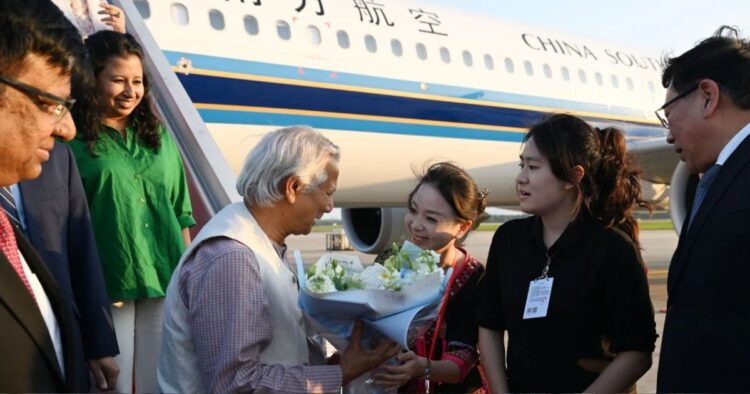Muhammad Yunus, the head of Bangladesh’s interim government, has sparked a big controversy with his comments about India. He claimed that Bangladesh is the “only guardian of the ocean” for India’s northeastern states, also known as the Seven Sisters. He suggested that these states, which are landlocked, depend entirely on Bangladesh for access to the sea.
This is not true. India has been working hard to improve its own connectivity to the sea through various projects. For example, the Kaladan Multi-Modal Transit Transport Project and new road networks link Northeast India to Myanmar and Southeast Asia, making Bangladesh’s role less important.
Yunus also made another concerning comment, saying that Northeast India should become an “extension of the Chinese economy,” implying that the region should work closely with China. This is worrisome because India is already facing challenges with China along their border, and such comments seem to support China’s interests, which could harm India’s security.
In short, Yunus’s remarks seem to ignore India’s efforts to improve its own infrastructure and security, while pushing a narrative that could weaken India’s sovereignty. Yunus also suggested that Nepal and Bhutan’s huge hydropower resources should be used for Bangladesh’s industrial growth.
He said, “Nepal has unlimited hydropower, which is a blessing. Bhutan has unlimited hydropower, which is a blessing. We can use this power to set up factories and more. From Bangladesh, you can reach anywhere because the ocean is our backyard.”
Sanjeev Sanyal, an economist and member of the Economic Advisory Council to the Prime Minister, strongly disagreed with Yunus. He questioned why Yunus was talking about China and India’s landlocked states.
Sanyal pointed out that China is free to invest in Bangladesh, but Yunus seemed to be making a strange connection between that and India’s Seven Sisters being landlocked. Sanyal raised concerns about Yunus’s intentions, asking, “Why is Yunus making a public appeal to China based on the fact that 7 Indian states are landlocked?”

















Comments